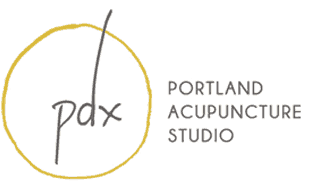Acupuncture for Miscarriage
Spying a positive sign on a home pregnancy test can be a long awaited affirmation when trying to conceive. The excitement can become a devastating loss, however, if the pregnancy is not viable. Miscarriage occurs in 15-25% of known pregnancies, and about 1% of women suffer from repeat miscarriages. Recent evidence suggests acupuncture and Chinese medicine may be an important treatment to improve fertility by preventing miscarriage.
The most common cause of miscarriage is age. As the mother’s age increases, so does the risk of genetic abnormalities leading to an unsustainable pregnancy. More research now also suggests the father’s age and overall health could also play a role.
Loss defined
In simplest terms, a miscarriage is a pregnancy involuntarily ended before the 20th week of pregnancy or if the unborn baby’s weight is below 500g or 1.1 pounds. It is classified in many ways: threatened miscarriage, inevitable miscarriage, incomplete miscarriage, complete miscarriage and recurrent miscarriage.
- Threatened miscarriage is vaginal bleeding with or without cramping, but the opening to the uterus is closed and not compromised. In this situation, there is generally no passage of tissue, only blood or pink discharge.
- An inevitable miscarriage presents with bleeding, cramping and passage of uterine tissue as the uterus opens. A miscarriage is imminent.
- An incomplete miscarriage is represented by an incomplete discharge of pregnancy products. The fetal and uterine tissue is partially or completely retained. This can lead to severe infection.
- A complete miscarriage is self-explanatory. All pregnancy tissue is completely expelled by the body.
Is it only age?
While age is a considerably influential factor, there are several other reasons for a spontaneous loss.
Fetal genetic abnormalities
Nearly 50 to 75% of all losses are due to chromosomal abnormalities in the fetus.
Anatomic Factors
An abnormally shaped uterus, thin uterine lining, the presence or polyps, uterine fibroids, or adhesions can make it difficult for successful implantation or adequate blood flow to the gestational sac.
Immune disorders
Autoimmune disorders such as lupus, anti-cardiolipin antibody (ACA), anti-phospholipid antibody (APA), anti-thyroid antibodies (ATA), and antinuclear antibodies (ANA), anti-sperm antibodies (ASA), increased natural killer cells and elevated levels of homocysteine. Elevated homocysteine can lead to blood clots.
Hormone issues
Hormonal imbalances can include progesterone deficiency, untreated or poorly managed metabolic diseases such as hyperthyroidism or hypothyroidism, uncontrolled diabetes, and polycystic ovarian syndrome.
Bacterial infections
Bacterial Vaginosis, pelvic inflammatory disease, mycoplasma, ureaplasma, Toxoplasma gondii, Listeria monocytogenes, and Campylobacter species.
Environmental influences
This is a broad section. It includes lifestyle behaviors and environmental exposures. Smoking more than 10 cigarettes a day is strongly associated with recurrent miscarriage. Drinking two or more alcoholic beverages a day, or consuming 300 g or more of caffeine daily, are also implicated. Lifestyle behaviors, smoking cessation, and behavior modification are often prescribed. Environmentally speaking associated with directly or indirectly causing miscarriage are: dry cleaning agents; solvents such as acetone, xylene, tricholorethylene; heavy metals like mercury and lead; benzo(a)pyrene (BaP); chemicals like ethylene oxide, chlorpyrifos (Durban), butylated hydroxyanisole (BHA); and Poly Vinyl Chlorid (PVC) plastics.
Male factor
There is limited, but growing evidence that sperm may be a contributing factor to miscarriage.
Treatment options
Family building was of central importance in Chinese culture dating back to the ancients. As such, acupuncture and Chinese herbal medicine is used to treat new mothers facing a miscarriage. If there is a genetic abnormality, there is nothing that can be done. While this does not make the experience any easier, nature recognizes the delivery of a healthy baby is not possible in this case. Our job as acupuncturists is not to intervene in this situation. Instead, we redirect the treatment focus to supporting the body through its natural process and prepare you for the next opportunity for pregnancy. We can offer help however when the situation arises in a threatened miscarriage due to the mother’s physiology and complement the western treatment.
The key to prevent miscarriage from a Chinese medicine perspective is preparation prior to conception. Taking the time to ensure the body is working at its most optimal state is essential. Treatment is focused on correcting issues caused by aging, hormone imbalances, overactive immune responses, or clearing a blockage due to adhesions or polyps. The fertile potential of each egg is increased, and the uterus and fallopian tubes become more hospitable environment for sperm. Fertilization of the egg, maturation into a robust embryo, and implantation of the healthy embryo are all supported by Chinese medicine.
Acupuncture for miscarriage
As already noted in this series, East Asian Medicine can normalize hormones, and optimize metabolism, improve blood flow to the uterus and ovaries, thicken the uterine lining, induce ovulation, and reduce pain to improve fertility. According to the literature, adding Chinese herbs to usual medical care may be an effective treatment to reduce miscarriage over usual care alone. And, acupuncture during an in vitro fertilization cycle in addition to the day embryo transfer, resulted in fewer miscarriages in the compared to no acupuncture. One mechanism to explain how acupuncture treatment may assist is by increasing important immune factors that protect the embryo and placenta.
When a pregnancy is threatened with miscarriage and bleeding, Chinese medicine may offer some help if there is not a genetic abnormality. Working closely with you and your managing physician (obstetrician or reproductive endocrinologist) is recommended and will may include acupuncture, moxibustion, and Chinese herbs. For women with recurrent pregnancy loss, preventative treatment is central to the treatment plan. In general, treatment to prevent miscarriage includes weekly acupuncture for three months to support the full egg development cycle, which is around 90-100 days. Depending upon your East Asian Medicine diagnosis and current biomedical treatment, weekly acupuncture, diet and lifestyle modification, and dietary supplementation tailored to your presentation are always part of the treatment plan. If appropriate, Chinese herbal therapy may also be suggested if there are no contraindications. As an example of how this might work, I recently published a case study on the successful treatment of recurrent pregnancy loss in a 42-year-old woman.
Resources
- Coming to term, by J. Cohen.
- Trying again: A guide to pregnancy after miscarriage, stillbirth and infant loss, by Douglass and Sissman.
- Pregnancy after a loss: A guide to pregnancy after miscarriage, stillbirth or neonatal death, by C. C. Lanham.
Want more information? Contact us. For updates, add this blog to your blog feeder, follow us on twitter or Google+, or like us on Facebook. For previous entries in this series, here’s parts 1, 2, 3, 4, 5, 6, and 7.
Photo by Danka Peter; used authorized by Creative Commons





